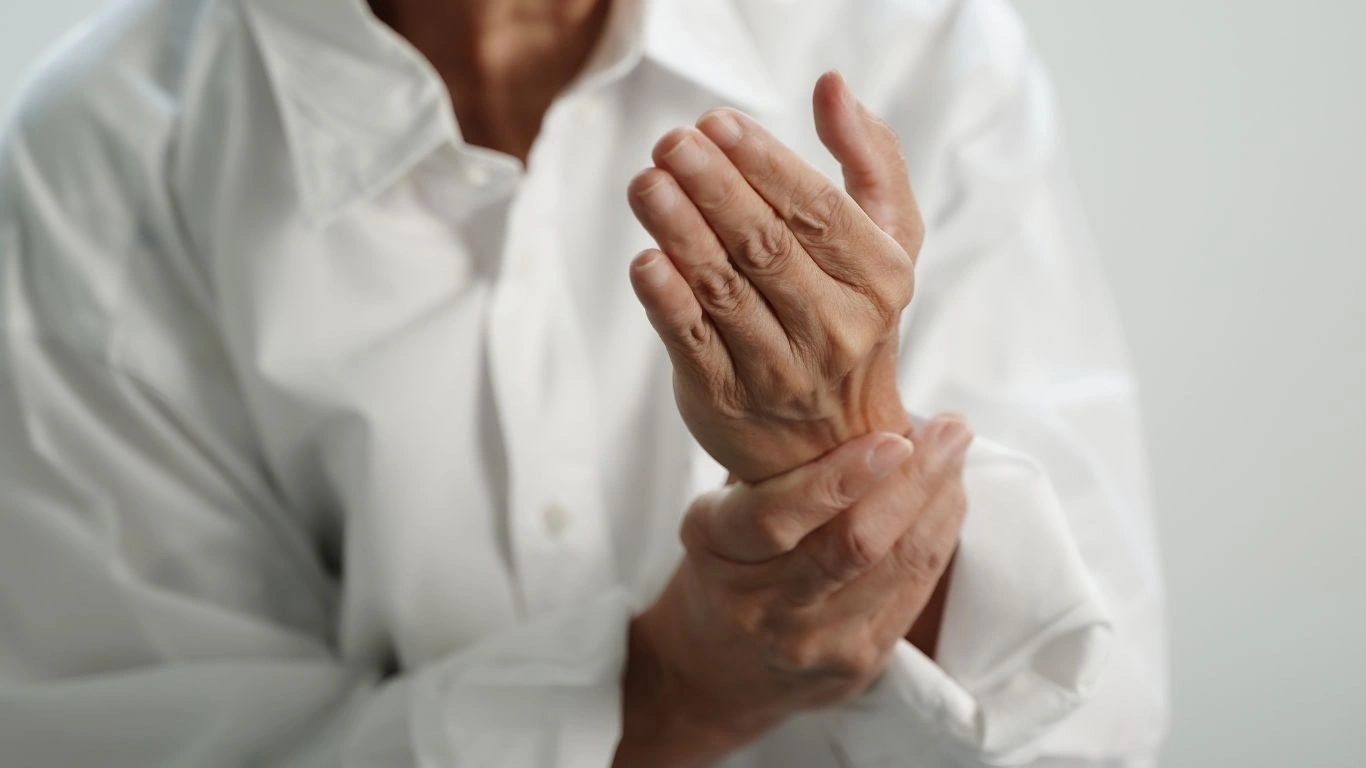“Rheumatoid Arthritis and the Power of a Support Network for Better Health”
Rheumatoid arthritis (RA) is more than just a medical condition—it’s a challenge that affects every aspect of a person’s life. As a rheumatoid arthritis expert, I’ve seen firsthand the physical, emotional, and mental toll it can take. When someone is diagnosed with RA, it’s not just about managing the pain and inflammation. It’s about addressing the emotional and social impacts that come with the condition. That’s why having a support network is so incredibly important. A support network isn’t just a nice-to-have; it’s an essential part of living well with rheumatoid arthritis.
Understanding Rheumatoid Arthritis: A Brief Overview

Rheumatoid arthritis is a chronic autoimmune disorder that primarily affects the joints, causing pain, swelling, and stiffness. The body’s immune system mistakenly attacks healthy tissues, specifically the synovium (the lining of the joints). Over time, this can lead to joint damage, deformities, and even disability. Although RA commonly affects joints like the knees, wrists, and fingers, it can also impact other parts of the body, such as the eyes, lungs, and heart.
Symptoms of rheumatoid arthritis can vary widely. Some individuals experience mild discomfort, while others may face severe flare-ups that interfere with daily life. The nature of the disease often means it progresses in waves—there are periods of intense inflammation and pain, followed by periods of relative calm. This unpredictable cycle can be mentally exhausting and emotionally draining. For someone with RA, managing these ups and downs is as important as managing the physical symptoms.
Why a Support Network Matters for People with Rheumatoid Arthritis

Living with rheumatoid arthritis can feel incredibly isolating at times. The physical limitations can make it hard to keep up with work, family obligations, or hobbies. The emotional burden of chronic pain and fatigue can take a toll on mental well-being. This is why the importance of a support network cannot be overstated. Whether it’s family, friends, or healthcare professionals, having a group of people who understand your experience and offer assistance can significantly improve your quality of life.
Emotional Support: More Than Just a Listening Ear
Rheumatoid arthritis can lead to feelings of frustration, sadness, or even depression. One of the most profound benefits of a support network is the emotional comfort it offers. Sometimes, it’s not just about physical help—it’s about having someone to talk to who truly understands what you’re going through.
As someone who specializes in the treatment and management of rheumatoid arthritis, I’ve witnessed the power of emotional support. Patients who have a solid support system often report feeling more empowered and better able to cope with the daily challenges of RA. Whether it’s a family member offering words of encouragement, a friend who provides a distraction, or a therapist helping to manage the emotional side of the condition, emotional support plays a critical role in maintaining mental health.
Physical Support: Helping With Daily Tasks
Rheumatoid arthritis can make it challenging to perform everyday tasks. Simple actions like opening a jar, getting dressed, or walking up stairs can become difficult or painful. Having a supportive family member or friend who can step in and help with these tasks can make a huge difference in a person’s independence and quality of life.
Physical support doesn’t mean someone has to take over your life completely—it’s about finding the right balance. It could be as simple as someone helping you carry groceries or assisting with household chores when you’re having a particularly tough day. In my experience, those who have a network that can provide physical support often experience less frustration and feel less helpless.
Understanding the Role of Healthcare Professionals
While family and friends are an essential part of a support network, so are healthcare professionals. A team of doctors, nurses, physical therapists, and other specialists can provide invaluable guidance and resources to help manage rheumatoid arthritis effectively.
In my own practice, I emphasize the importance of communication between patients and their healthcare team. A well-rounded support network includes medical professionals who can provide tailored advice and help develop a treatment plan that suits the individual’s needs. This collaborative approach can lead to better disease management and an improved overall prognosis. The support from medical professionals helps ensure that the individual is on the right track in terms of treatment options, medication adjustments, and lifestyle changes.
Building Your Support Network: Where to Start

Building a solid support network takes time and effort. But with a little guidance, anyone with rheumatoid arthritis can start creating a circle of support that works for them. The key is to be proactive and seek out the help you need. Here are a few suggestions for building your network:
- Reach Out to Family and Friends – It might be difficult at first, but don’t hesitate to lean on those closest to you. Sharing your diagnosis and struggles with loved ones can strengthen your bond and encourage them to offer practical and emotional support.
- Join RA Support Groups – Connecting with others who have RA can be incredibly helpful. Support groups, both in-person and online, offer a safe space to share experiences, ask questions, and learn from others who are walking the same path.
- Work with Your Healthcare Team – Ensure that your doctors and therapists are part of your support network. They can offer invaluable advice and help you navigate the challenges of living with RA.
- Consider Professional Counseling – If you’re struggling with the emotional toll of RA, a counselor or therapist can offer support in processing your feelings and learning coping strategies.
Creating a network that includes both emotional and practical support can help you manage the ups and downs of living with rheumatoid arthritis. In my experience, those with strong support systems often fare better when it comes to dealing with flare-ups and finding hope during difficult times.
The Benefits of Building a Strong Support Network for Rheumatoid Arthritis

Having a solid support network in place offers numerous benefits for those living with rheumatoid arthritis. Beyond the physical help that others can provide, a strong support system contributes significantly to mental well-being, emotional resilience, and overall disease management. I’ve seen many patients thrive simply because they had the right people around them, offering understanding, encouragement, and practical help. Let’s dive into some of the key benefits that come from having this network in place.
Emotional Stability and Reduced Stress
One of the most significant challenges of rheumatoid arthritis is the emotional rollercoaster it often brings. From the stress of managing flare-ups to dealing with the frustration of fluctuating symptoms, it’s easy for anyone with RA to feel overwhelmed. But this is where a supportive network makes a world of difference. When you have people who are there to listen, offer comfort, and help with problem-solving, it can greatly reduce your stress levels.
I’ve had patients tell me how much of a relief it is just to vent about their frustrations with someone who truly gets it. Having that emotional outlet is key for mental health. Knowing that you’re not in this alone allows you to handle the ups and downs of the disease with a little more grace and patience. It gives you a sense of control when so many aspects of your health feel unpredictable. In fact, patients who feel supported often report a stronger sense of emotional stability, which helps them manage the disease better overall.
Practical Help That Makes Life Easier
Living with rheumatoid arthritis often means adjusting how you approach everyday activities. Many people experience difficulty with tasks that were once second nature, like dressing, cooking, or cleaning. But this doesn’t mean you have to do everything by yourself. A solid support network can help lighten this load.
Whether it’s a family member coming over to help with grocery shopping or a friend who offers to drive you to doctor’s appointments, these small acts of support can make a huge difference. I always tell my patients not to feel guilty about accepting help when they need it. It’s not about giving up independence, but rather ensuring that you maintain a good quality of life. This kind of support means that you can focus on what really matters, without being bogged down by tasks that are physically demanding or just too overwhelming.
The Importance of Healthcare Providers in Your Support System

When most people think of a support network for rheumatoid arthritis, they often think of family and friends. But your healthcare providers play an essential role in that network, too. From your rheumatologist to physical therapists, these professionals are on the front lines, helping you manage your condition and improve your quality of life. Their knowledge and expertise are crucial when it comes to navigating the complexities of RA.
In my practice, I emphasize building a strong, collaborative relationship with my patients. It’s important for individuals with rheumatoid arthritis to feel comfortable discussing their symptoms, treatment options, and concerns with their healthcare providers. Trust is key in this relationship. A knowledgeable doctor can guide you through the latest treatments, suggest lifestyle changes, and monitor your progress over time. And while your healthcare provider is there to offer professional guidance, they can also provide emotional support in the form of reassurance, information, and encouragement. Knowing that you have a dedicated team of experts behind you can give you peace of mind, especially during challenging times.
Regular Check-ups and Treatment Adjustments
Rheumatoid arthritis is a dynamic condition, meaning that it changes over time. What works for one person at one stage of the disease might not work later on. That’s why regular check-ups with your healthcare provider are so important. These appointments give you the chance to assess how well your treatment plan is working and make adjustments as needed. For example, medications may need to be altered if symptoms worsen, or new therapies might need to be introduced if a flare-up occurs.
Having your healthcare team involved in your support network ensures that you’re always on top of your treatment plan. If you’re feeling uncertain or anxious about your progress, a healthcare provider can offer the guidance and support needed to keep you on track. They can also give you the confidence to make informed decisions about your treatment and care, which helps alleviate the stress of uncertainty. Through continuous support from healthcare professionals, you’re more likely to stay motivated and engaged in your treatment plan, which is crucial for long-term management of RA.
Empowerment Through Education
Education is a powerful tool when it comes to managing rheumatoid arthritis. When individuals with RA understand their condition better, they’re more equipped to make informed decisions about their care. A good support network includes access to resources, whether that’s through a healthcare provider, online forums, or educational workshops.
As a rheumatology expert, I always encourage my patients to ask questions and learn as much as they can about RA. The more informed you are, the more empowered you become in managing your own health. A support network that includes educational resources can help you understand the causes of your symptoms, the available treatment options, and how lifestyle factors—such as diet and exercise—can impact your overall well-being. Empowerment through knowledge can make you feel like you have more control over your disease, which can be a huge emotional boost.
Finding Support Outside of Family and Friends

Sometimes, family and friends aren’t always the best source of support. Whether it’s because they don’t fully understand the disease or because they have their own personal challenges, it’s important to look for support outside of your immediate circle. Fortunately, there are many options available for people with rheumatoid arthritis who want to expand their support network.
Online communities, for instance, can provide a wealth of support. Many people with RA find comfort in connecting with others who share similar experiences, especially when they can’t find someone close by who truly understands. Online forums, social media groups, and dedicated RA websites offer a space where people can share advice, swap tips for managing symptoms, and simply offer words of encouragement. It’s a great way to connect with a larger community of individuals who are walking the same path.
Support groups—both in-person and virtual—also provide a sense of belonging. There’s something profoundly comforting about knowing that there are others who truly get what you’re going through. Many individuals with RA have shared with me that these groups have become like a second family. Whether it’s a group that meets at a local hospital or a virtual meeting on Zoom, support groups offer a sense of camaraderie and the opportunity to share experiences in a safe, judgment-free space.
Dealing with Setbacks: How a Support Network Can Help You Through the Tough Times

No one with rheumatoid arthritis is immune to setbacks. Flare-ups, unexpected pain, or even just feeling like you’ve hit a plateau in your treatment can be discouraging. But it’s during these tough times that the true value of a support network shines through. When I’m working with patients who face a difficult moment, I always emphasize the importance of turning to your support system—not just as a source of help, but as a reminder that setbacks are a part of the journey, not the end of it.
Emotional Resilience: The Role of Family and Friends
There’s something incredibly powerful about the emotional support from family and friends during a tough flare-up. Whether it’s a phone call to check in, someone offering a shoulder to lean on, or simply having someone present who understands the emotional burden of living with RA, it can make all the difference. I’ve seen patients in some of their hardest moments, only to have their loved ones help them see that these setbacks are temporary, and they have the strength to get through them.
The presence of a supportive friend or family member can provide emotional resilience, making it easier to stay positive even when symptoms are overwhelming. It’s not about “fixing” things; it’s about reminding you that you are not alone in this battle. It’s often these simple, small acts of kindness that can help shift your mindset during a setback, keeping you focused on long-term management and recovery.
Support Groups: A Safe Place for Tough Conversations
Support groups can also play a critical role when it comes to navigating setbacks. Whether you’re part of a virtual or in-person group, having a space where you can openly talk about the challenges you’re facing with people who truly understand is invaluable. For many people with RA, these groups offer a safe space where they can express feelings of frustration, guilt, or fear without the fear of judgment.
What’s unique about these groups is that they’re often led by people who’ve been there. They’ve lived through the ups and downs of rheumatoid arthritis themselves, and they can offer practical advice and emotional support based on personal experience. These conversations can give you insight into how others are managing their setbacks and help you feel less isolated. Knowing that there’s a community of people who get it is often just the boost needed to keep pushing forward.
The Importance of Self-Care in RA: How Your Support Network Encourages Healthy Habits

When managing rheumatoid arthritis, self-care is essential. But it’s not always easy to prioritize self-care, especially when the symptoms of RA leave you feeling drained, frustrated, or overwhelmed. This is where your support network comes in—whether it’s helping you stick to a routine, encouraging healthy habits, or simply reminding you that self-care is an important part of your journey. Having people around who motivate you to take care of yourself can make all the difference in how you approach day-to-day living with RA.
Exercise and Physical Activity: A Support Network Encourages Movement
One of the cornerstones of managing rheumatoid arthritis is staying active. Regular exercise can help reduce joint stiffness, improve flexibility, and even boost your mood. However, when you’re in pain or feeling fatigued, it can be hard to motivate yourself to move. But having a supportive friend or family member who encourages you to stick to an exercise routine can make it much easier.
In my experience, patients who have a workout buddy or someone to help them with physical therapy exercises tend to stay more consistent with their movement. It could be as simple as a daily walk with a friend or joining a low-impact yoga class together. These small actions help create a sense of accountability, making it easier to follow through with self-care routines even when you don’t feel like it. Plus, having someone there to share in the effort can help you celebrate small victories along the way.
Nutrition and Diet: A Network that Keeps You on Track
Nutrition also plays a significant role in managing rheumatoid arthritis. Many people with RA find that certain foods can either trigger or soothe inflammation. But navigating healthy eating choices while dealing with the physical challenges of RA can be difficult. This is where having a support system that encourages healthy eating is vital.
For example, a family member might help with meal planning or offer to cook nutritious meals together. A friend may join you in adopting anti-inflammatory foods into your diet, making it feel more like a team effort than a solo task. I always recommend that my patients lean on their support network when it comes to maintaining healthy eating habits—whether it’s sharing recipes, prepping meals together, or simply encouraging each other to make better food choices. When managing RA, you don’t have to do it all on your own. With the right support, healthy habits become a part of your lifestyle, not a burden.
Where to Find More Resources and Support for Rheumatoid Arthritis
As we’ve discussed, having a strong support network is key to living well with rheumatoid arthritis. But sometimes, it can be difficult to know where to find the right resources or connect with the right people. Fortunately, there are a variety of organizations and online resources available that can help you build your support system.
Support groups are an excellent place to start. Many organizations like the Arthritis Foundation provide resources and listings for both in-person and virtual RA support groups. These groups can be a lifeline when you’re looking to connect with others who understand what you’re going through. They also offer valuable insights into managing RA, including tips on coping with flare-ups, managing medications, and maintaining a positive outlook.
Online communities, such as forums and social media groups, also provide an opportunity to interact with others in similar situations. There are a wealth of communities out there dedicated to rheumatoid arthritis, offering a mix of emotional support, expert advice, and practical tips. Websites like [HealthUsias](https://healthusias.com) and the Arthritis Foundation offer up-to-date information and resources that can guide you on your journey.
Disclaimer
The information provided in this article is for educational purposes only and is not intended to replace professional medical advice. Always consult with your healthcare provider before making any changes to your treatment plan or lifestyle. The advice and information presented here are based on my professional experience, but individual results may vary. Your healthcare provider can help tailor a plan that is best suited for your specific needs.
Remember, living with rheumatoid arthritis is a journey, and it’s a lot easier when you have the right support in place. Whether it’s from family, friends, healthcare professionals, or online communities, never hesitate to reach out. Together, we can manage RA and live life to the fullest.

Tarra Nugroho is a dedicated Nurse Practitioner with a strong foundation in family and preventive care. She brings both compassion and clinical expertise to her practice, focusing on patient-centered care and health education. As a contributor to Healthusias.com, Tarra translates medical knowledge into clear, empowering articles on topics like women’s health, chronic disease management, and lifestyle medicine. Her mission is simple: help people feel seen, heard, and informed—both in the clinic and through the content she creates. When she’s not caring for patients, Tarra enjoys weekend hikes, plant-based cooking, and curling up with a good health podcast.







